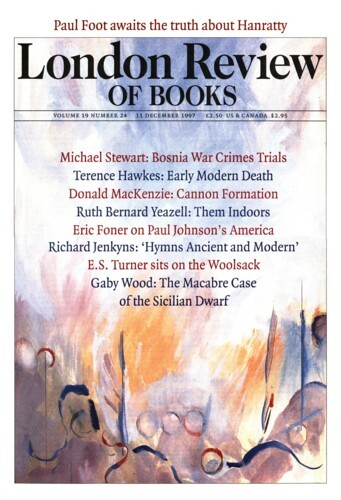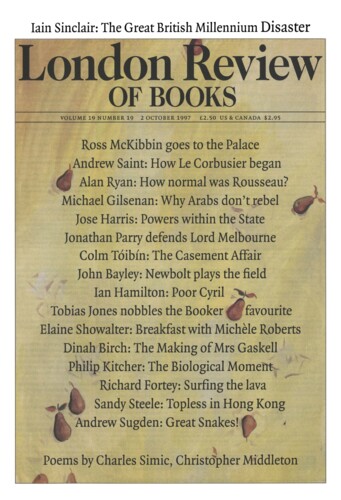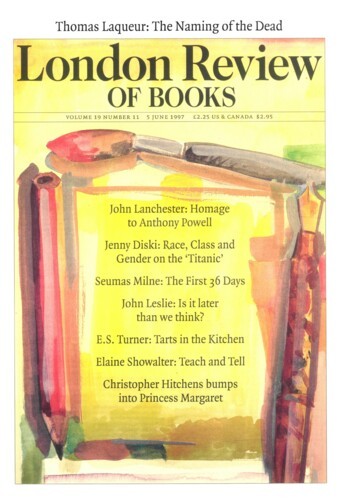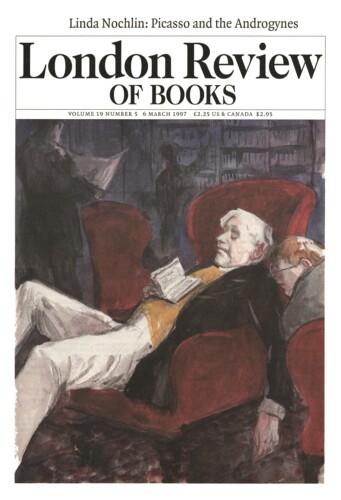The Dollar Tree
Tobias Jones, 11 December 1997
Paul Auster is so implicated in his own fictions that it is often hard to tell whether his covert appearances there represent a Modernist textual teasing or a baser vanity; whether his walk-on parts are self-mocking or aggrandising. In City of Glass, the first volume in the New York Trilogy, the writer’s identity is always a plaything: Quinn, the writer, uses the pseudonym William Wilson, who himself writes about the improbably named Max Work, and is mistaken for Paul Auster, ‘of the Auster Detective Agency’. (The ‘Auster’ character always gets the smartest lines in the story, being allowed, for example, to expand on his pet theories about Don Quixote and the difficulties, significantly enough, of representation. ‘Remember: throughout the book Don Quixote is preoccupied by the question of posterity. Again and again he wonders how accurately his chronicler will record his adventures.’) The writer stumbles across characters reading his books, only to be told: ‘It’s no big deal. It’s just a book.’ Then in Leviathan, published some years later, Auster uses the same initials for the narrator, Peter Aaron; and anagrammatic sleight of hand (Delia/Lydia, Iris/Siri: Auster’s real-life loves past and present) further blurs the boundaries between his facts and his fictions.‘




